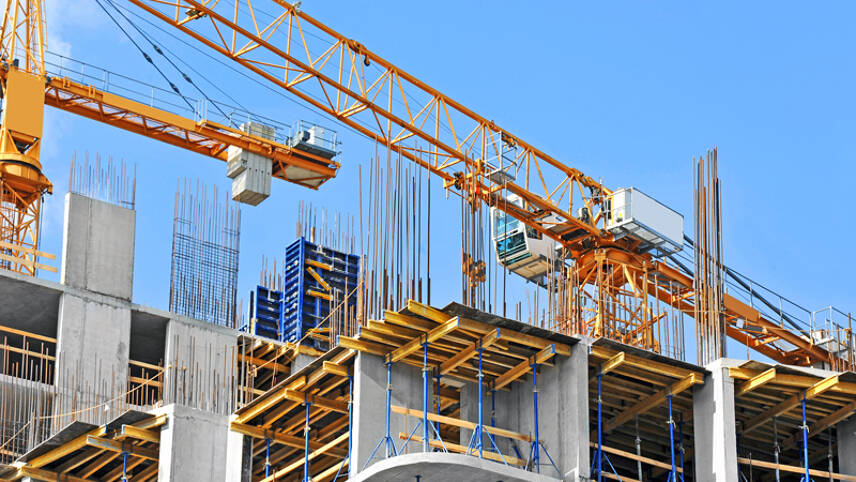Register for free and continue reading
Join our growing army of changemakers and get unlimited access to our premium content

Concurrently, British landlords have urged the Government to support energy efficiency improvements in the private rental sector.
While emissions reduction in the built sector has decreased across several G20 nations, including the UK, France, and Germany, progress has reversed in the US with built sector emissions now on the rise.
This is according to a new study published by sustainability consultancy 3Keel and global insulation company, Kingspan. The study delves into historical building emission trends and retrofitting rates, highlighting the gaps between current actions and the targets set by the Paris Agreement.
The analysis indicates that if the current, slowemissions reduction trajectories and retrofitting rates persist over the next decade, major global economies will fall far short of achieving their respective net-zero pathways.(no country has a 2040 net zero target that I know of).
The report scrutinises Energy Performance Certificate (EPC) data, revealing minimal improvements in the energy efficiency of buildings in the UK, France and Ireland over the past decade. Most buildings in these countries are still rated as ‘C,’ ‘D,’ or below
And Germany’s residential building stock, according to the study, remains heavily reliant on fossil-fuel heating.
The study reveals that despite existing retrofitting solutions, significant barriers such as insufficient private investment, workforce skills shortages and limited awareness among citizens and building owners are impeding rapid and widespread implementation.
Policy support wavers
The reduction in greenhouse gas (GHG) emissions from the UK’s building stock has been just 6% over the past decade. The analysis partly attributes this slow progress to the government’s decision in 2012 to withdraw support for improving residential energy efficiency.
According to the Climate Change Committee, retrofitting stands as a crucial tool for decarbonising the UK, expected to account for more than 90% of the necessary reductions in building emissions.
However, the study argues that the recent shifts in Government policies lack the sustained assurance and backing necessary for businesses, landlords and homeowners to invest in energy-efficient measures for the long term.
A landlord call to action
British Gas has released a report highlighting a considerable gap in the private rental sector, with more than three million homes requiring energy-efficient upgrades like low-carbon heating.
Despite 81% of landlords acknowledging the need for improvements, only 23% plan to take action.
The challenges include a lack of awareness about EPC ratings and the costs involved. Two-thirds of the landlords are unaware of or overestimate the expenses of reaching the EPC C standard, which had previously been a target for rental homes before the Prime Minister changed net-zero policies in September.
Additionally, landlords believe that financing environmental enhancements should be a joint responsibility between themselves and the government (28%), indicating a reluctance to place this burden on tenants.
British Gas has put forth several recommendations to empower landlords to enhance energy efficiency while assisting renters in securing warmer homes and reduced bills. Some of these proposals include the introduction of a Green Upgrade Relief, permitting landlords to offset green improvements from their annual income, alongside the implementation of government-kitemarked loan terms for private lenders, supported by the UK Infrastructure Bank.
Additionally, an update to the Renters Reform Bill is suggested to ensure landlords cannot reasonably reject smart meter installations, thus strengthening renters’ rights and awareness thereof.
Looming skills gap
Historic England has recently unveiled critical data highlighting England’s need for retrofitting skills to achieve net-zero in historic buildings.
Demand for this kind of work will soon outpace worker availability, their analysis found. Historic England estimates that, through to 2050, the UK will need to train an additional 86,500 people for energy efficiency jobs.
This workforce expansion could generate £12bn in direct annual economic output, according to the research.
The data reveals that Greater Manchester, requiring roughly 5,000 workers, foresees a direct economic output of £570m annually from retrofitting structures built before 1919.
Similarly, Liverpool City Region anticipates the need for around 2,800 workers, potentially generating £320m.
West Yorkshire aims to employ about 3,500 workers, projecting an economic output of £360m.
Meanwhile, Greater London necessitates a significant workforce of 16,300 individuals, potentially generating £3.1bn in economic output yearly.
Recommendations to accelerate progress
As the report from 3Keel and Kingspan highlights, retrofitting is paramount in the quest to decarbonise the built environment, especially considering that 80% of the buildings standing in 2050 have already been constructed.
The study identifies five key elements crucial to overcoming these barriers and enabling effective, affordable and large-scale retrofitting of national building stocks.
These recommendations include setting net-zero building performance standards, developing a national retrofit plan, providing financial incentives and support, upskilling the workforce and scaling the supply chain, and promoting best practice and data transparency.
The study anticipates these elements to present significant opportunities for job creation, reductions in social inequality and improved health and quality of living, in addition to accelerating the path to net-zero emissions.


Please login or Register to leave a comment.